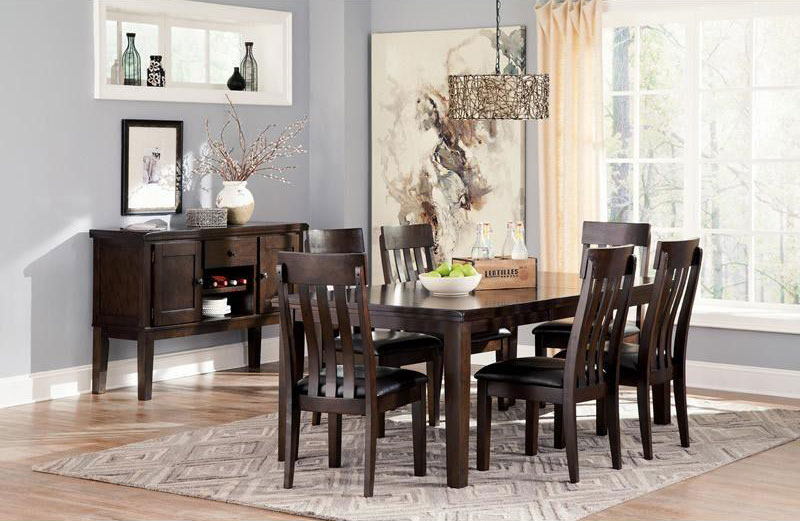What is fast furniture?
Fast furniture is a cultural phenomenon born of ease and mobility. With so many people relocating, downsizing, upgrading, or in general, shifting their homes and home design preferences each year based on the latest trends, fast furniture aims to create cheap, fashionable, and easy-to-breakdown furniture.
According to the EPA, Americans alone throw out over 12 million tons of furnishings and furniture each year. And because of the complexity and varying materials in many of the items—some recyclable and some not—over nine million tons of glass, fabric, metal, leather, and other materials end up in landfills, too.
Julie Muniz, a Bay Area international trend forecasting consultant, curator, and expert in direct-to-consumer home design, weighs in on the growing problem. “Like fast fashion, fast furniture is produced quickly, sold cheaply, and not expected to last more than a few years,” she says, “The field of fast furniture was pioneered by IKEA, which became a global brand producing flat-packed pieces that could be assembled by the consumer.”
The Shift Away from ‘Fast’
Companies are slowly moving away from the fast furniture category.
IKEA
For example, although IKEA has generally been seen as the poster child for fast furniture, Muniz shares that they’ve invested time and research into reshaping this perception over recent years. They now offer dis-assembly instructions and options to break down pieces if the furniture needs to be moved or stored.
In fact, IKEA—which boasts more than 400 nationwide stores and $26 billion in annual revenue— has launched a sustainability initiative in 2020, People & Planet Positive (you can see the full assets here), with a full business roadmap and plans to become a fully circular company by the year 2030. This means that every product they create with be designed with the intention to be repaired, recycled, reused, sustainably upgraded within the next ten years.
Pottery Barn
In October 2020, furniture and decor store Pottery Barn launched its circular program, Pottery Barn Renewal, the first major home furnishing retailer to launch a renewed line in partnership with The Renewal Workshop. Its parent company, Williams-Sonoma, Inc., is committed to 75% landfill diversion across operations by 2021.
Other Concerns With Fast Furniture and Alternatives
Candice Batista, an Environmental Journalist, Eco Expert, and founder of theecohub.ca, weighs in. “Fast furniture, like fast fashion, exploits natural resources, precious minerals, forestry products, and metal,” she says, “The other major issue with fast furniture is the number of toxins found in furniture fabrics and finishes. Chemicals like formaldehyde, neurotoxins, carcinogens, and heavy metals. The same goes for the foam. It’s known as “Sick Building Syndrome” and indoor air pollution, which the EPA actually says is worse than outdoor air pollution.”
Batista brings up another relevant concern. The trend of fast furniture goes beyond the environmental impact. With the desire for fashionable, convenient, and in a sense quick and painless home design, consumers may face potential health risks, too.
In order to provide a solution, some waste management companies are developing options for responsible consumerism, starting at the corporate level. Green Standards, a sustainability firm, has created programs for responsible decommission of corporate offices and campuses. They offer options to donate, resale, and recycle old items with the hopes of lessening the corporate environmental impact on a global scale. Companies like Fast Furniture Repair are also actively combatting the fast furniture problem by offering everything from touch-ups to full service upholstery and leather repair.
Floyd, a Denver-based start-up founded by Kyle Hoff and Alex O’Dell, has also created furniture alternatives. Their Floyd Leg—a clamp-like stand that can transform any flat surface into a table—offers options for all homes without bulky pieces or complicated assembly. Their 2014 Kickstarter generated over $256,000 in revenue and since its launch, the company has gone on to create more long-lasting, sustainable options.
Ultimately, the trends around fast furniture are changing as preferences shift to conscious consumerism—the idea of preference, convenience, and affordability, sure—while becoming keenly aware of how your individual consumption impacts society.
As more and more companies, businesses, and brands create alternative options, the hope is to lessen the environmental impact by starting, first, with awareness. From there, active change can and will happen from larger companies all the way down to the individual consumer.
Furniture Solutions, the furniture store in Northern Kentucky, carries the most popular brands like Ashley Furniture, Coaster Furniture, Sealy Mattress and Sauder. You will be amazed at the incredible value and low prices we have on a large selection of bedroom suites, dining room collections, sofas , chairs and all manner of accent furniture that will make your home new. Those who are in communities that are further away just need to call us and we will do our best to respond to your needs. When you drop by, you will be greeted by the friendliest sales personnel you have ever been served by. We can hardly wait to meet you and help you make the right choice.

